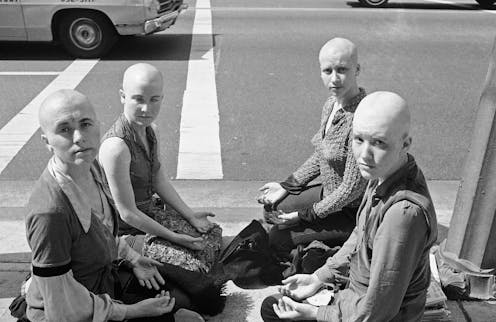how cults corrupt our desire for love and connection
- Written by Shane Satterley, PhD Candidate, Griffith University

Project Mayhem is an all-male cult – but unlike the real cults that Sarah Steel writes about in Do As I Say[1], Project Mayhem is fictitious. It comes from the mind of Chuck Palahniuk in his masterpiece novel Fight Club[2], a dark exploration of contemporary masculinity that describes how a group of men come together to form a fringe group with fringe ideas – and how this can go wrong.
Review: Do As I Say: How cults control, why we join them, and what they teach us about bullying, abuse and coercion, by Sarah Steel (PanMacmillan)
Project Mayhem exhibits many key elements of what we see in cults[3].

















